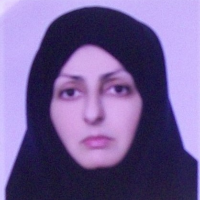Identification and Evaluation of Components of Spiritual Education Based on the Fundamental Transformation Document of Education
This study aimed to identify and evaluate the components of spiritual education based on the Fundamental Reform Document of Education.
This research was applied in terms of purpose and exploratory mixed (qualitative-quantitative) in terms of data. In the qualitative section, the statistical population included all relevant resources (books, articles, and theses) as well as experts in education and school administrators, with 20 individuals selected through purposive non-random sampling. In the quantitative section, the statistical population included 357 teachers from a total of 5100 secondary school teachers in Kurdistan, selected using stratified random sampling. Data were collected through interviews and researcher-made and standardized questionnaires, and data analysis was performed using descriptive and inferential statistical methods.
The results revealed that the identified components of spiritual education included cognitive, emotional, and behavioral education, while the factors affecting spiritual education included the values and ethical norms of society, policy-making and planning in the educational system, teachers, and the curriculum. Statistical analyses showed that these components and factors were of appropriate validity.
Based on the results, spiritual education based on the Fundamental Reform Document of Education is significantly influenced by various components, including cognitive, emotional, and behavioral education, as well as factors such as the values and ethical norms of society, policy-making, and the roles of teachers and the curriculum. All these factors can contribute to improving the process of spiritual education in the educational system.
-
Assessing the Effectiveness of the Change Management Model in the Structure of Iran's Education System
Azad Noorbakhsh, Narges Hasanmoradi*,
Journal of Study and Innovation in Education and Development, -
Causal Model of Academic Achievement Well-being based on Multidimensional Perfectionism through Mediation of Student Engagement in Female Adolescents
Shaahin Shakeri *, Abolfazl Karami, , Afsanh Ghanbari Panah
Quarterly of Counseling Culture and Psychotherapy, -
A Framework of Teachers' Professional Qualifications for Re-Designing the Teacher Training Curriculum Based on Synthesis
Z.Eivazpour, Javad Hatami *, Majid Aliasgri, Zahra Sabaghian,
Journal of Higher Education Curriculum Stufies, -
Explaining the professional competencies of teachers of students with intellectual disabilities in the special education system
Mehdi Davaee*, MAHSHID Izadi, Mandana Faraji
Journal of Exceptional Children, -
Freedom and liberty of thought in the manifestations of rational education of the Quran and the method of teaching based on it
Rahele Aghamohammadi Sendani *, Khosrow Bagheri,
Quranic Studies Quarterly, -
The Position of Thinking Training based on Islamic Educational Philosophy through TV Media
Mohammadhosein Bakhshizade Moghadam, *, Masoome Samadi
Journal of Islamic Perspective on Educational Science,




